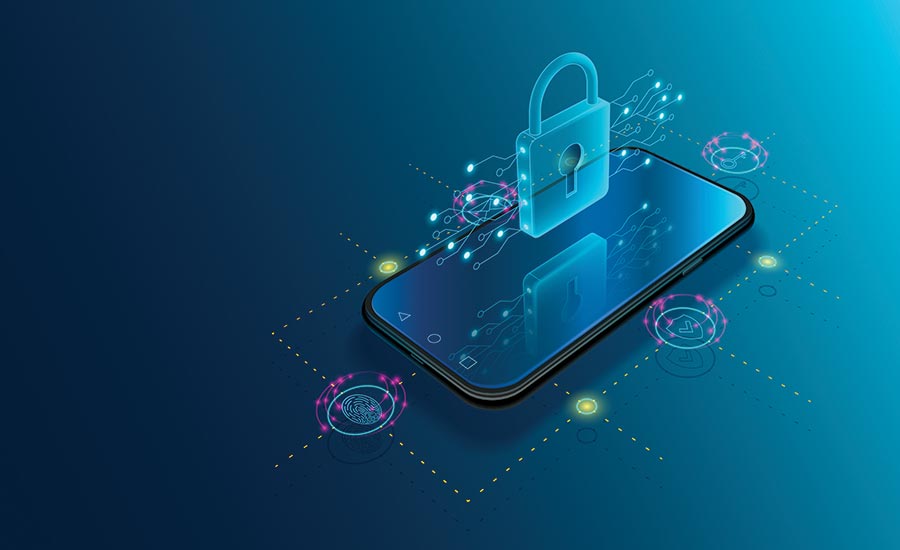Cell phones have become an essential part of our lives. We use them for everything from staying in touch with loved ones to conducting business. But with all the convenience they offer, cell phones also pose a number of security risks.
In this blog post, we’ll take a comprehensive look at cell phone security. We’ll discuss the different types of threats that exist, and we’ll provide tips on how to protect your device and your personal information.
Types of cell phone security threats
There are a number of different types of cell phone security threats, including:
- Malware: Malware is malicious software that can be installed on your phone without your knowledge or consent. It can be used to steal your personal information, damage your device, or even take control of it.
- Phishing attacks: Phishing attacks are attempts to trick you into revealing your personal information, such as your passwords or credit card numbers. Phishing attacks can be carried out via email, text message, or even social media.
- Man-in-the-middle attacks: Man-in-the-middle attacks occur when an attacker intercepts your communications without your knowledge. This can allow them to steal your personal information or even impersonate you.
- Physical theft: Cell phones are a popular target for thieves. If your phone is stolen, your personal information could be compromised and you could be left without a way to communicate.
Tips for protecting your cell phone and your personal information
There are a number of things you can do to protect your cell phone and your personal information, including:
- Use strong passwords and PINs. Your passwords and PINs should be at least 8 characters long and include a mix of upper and lowercase letters, numbers, and symbols. Avoid using easily guessed passwords, such as your name, birthday, or address.
- Keep your software up to date. Software updates often include security patches that can help protect your device from known vulnerabilities. Be sure to install software updates as soon as they become available.
- Be careful about what apps you install. Only install apps from trusted sources, such as the official app store for your device. Before installing an app, read the reviews and permissions carefully.
- Be careful about what links you click on. Phishing attacks can be very convincing. If you receive an email, text message, or social media message with a link, be careful about clicking on it. If you’re not sure whether the link is legitimate, hover over it to see the actual URL.
- Use a VPN on public Wi-Fi networks. Public Wi-Fi networks are often insecure. Using a VPN can encrypt your traffic and help protect your privacy.
- Back up your data regularly. If your phone is lost, stolen, or damaged, you’ll be able to restore your data from a backup. There are a number of different ways to back up your data, such as using a cloud storage service or backing up to your computer.
Additional tips for cell phone security
In addition to the general tips above, there are a few other things you can do to protect your cell phone and your personal information:
- Be careful about what information you share online. Avoid sharing personal information, such as your address, phone number, and financial information, on social media or other public websites.
- Be aware of your surroundings when using your phone in public. Avoid using your phone in areas where you could be easily pickpocketed, such as on crowded public transportation.
- Consider using a security app. There are a number of security apps available that can help protect your cell phone from malware and other threats.
Conclusion
Cell phone security is important for protecting your personal information and your privacy. By following the tips above, you can help protect your cell phone and your personal information from a variety of threats.
Here are some additional tips that you may find helpful:
- Use two-factor authentication (2FA) whenever possible. 2FA adds an extra layer of security to your accounts by requiring you to enter a code from your phone in addition to your password.
- Be careful about what information you give out over the phone. Never give out your credit card number or other personal information to someone who calls you out of the blue.
- Be careful about what attachments you open. Attachments can contain malware or viruses. If you’re not sure whether an attachment is safe, don’t open it.
- Keep your phone’s operating system up to date. Software updates often include security patches that can help protect your phone from known vulnerabilities.
- Use a strong antivirus program on your computer. An antivirus program can help protect your computer from malware that could spread to your phone.
By following these tips, you can help protect your cell phone and your personal information from a variety of threats.



